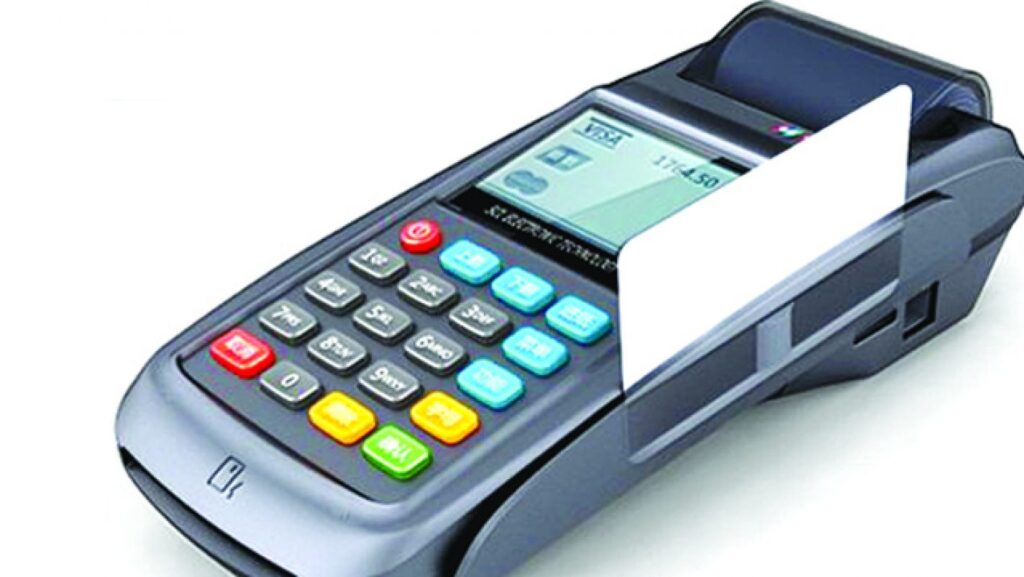
1. Introduction
The global pandemic of 2020 introduced the world to the increasing importance of digital banking and other online financial services. Thereafter, experts projected that digital banking users will rise to 3.6 Billion globally. Nigeria, for instance, recorded 3.7 Billion real-time transactions 2021, ranking sixth in the league of the world’s most developed real-time payments markets behind India, China, Thailand, Brazil, and South Korea.
In recent times, the growth of electronic payments in Nigeria has witnessed a sharp rise since the introduction of redesigned Naira notes (i.e. the N1000, N500 and N200 denominations) and cash withdrawal limits set by the Central Bank of Nigeria (CBN). The dual effects of the CBN’s currency redesign and cash withdrawal limits have caused Naira’s scarcity amongst vast majority of Nigerian population of over 200 MIllion people and, as such, digital payment transactions have increased astronomically.
In January 2023 alone, Nigerians spent a total of N38.7 Trillion (about $83 Billion) over electronic channels in January 2023 (based on the data released by the Nigeria Inter-Bank Settlement Systems (NIBSS)). Point of Sales (PoS) transactions in January 2023 accounted for N807.16 Billion (about $1.74 Billion) which is about 40.69% year-on-year increase from the N573.72 Billion PoS transactions that was done in last year’s January.
The foregoing data shows the enormous opportunities that lie in the Nigerian payment sector that are available for local and foreign investors in the fintech space. You can read more about How to Set up a Fintech Payment Company in Nigeria.
2. How do I set up a PoS Business in Nigeria?
To set up a PoS business, there are two options available and both require a fintech licence from the CBN, the regulatory bank in Nigeria. One option is to incorporate a N100 Million share capital company with the Corporate Affairs Commission (CAC) and obtain a Payment Terminal Service Provider (PTSP) licence from the CBN or to incorporate a N50 Million share capital company with the CAC and obtain a Super Agent licence from the CBN. Please note that the CAC will not incorporate any CBN-regulated company unless the promoters have first obtained a provisional approval (called Approval-In-Principle) from the CBN.
You can read more in our previous article about How to Register a Company in Nigeria.
The PTSP is the bigger, wider and more expensive licence of the CBN between the PoS-related licences (i.e. of PTSP and Super Agent) because it entails share capital of N100 Million and allows its holders to develop, own, deploy PoS terminals and provide PoS services as well as the provision of training and support services to merchants and PoS agents who use the payment terminals. It is important to mention that a Mobile Money Operator’s licencee can do all the permissible business activities that a Super Agent company can do in addition to those permitted by the CBN for MMO companies. A company seeking MMO licence must be incorporated with a N2 Billion share capital and must deposit N2 Billion with the CBN as a precondition for granting the MMO licence.
However, as part of the CBN’s policy to ensure financial inclusion amongst Nigerians, the CBN introduced the Super Agent licence as a subset of the payment terminal licence, with a lower capital requirement of N50 Million, which permits its holders to undertake agency banking for rural unbanked areas of the country (even though their coverage can sometimes be seen or felt in the cities as well). It suffices to state that a Super Agent company is the lowest capital threshold for entering the Nigerian fintech payment sector.
You can read more in our previous article on How to Set up a Super Agent Company in Nigeria.
3. How does a Super Agent deliver on its product and services to its targeted customers not owning a terminal?
As the Super Agent licence does not allow its holder to develop payment terminals, its holder is therefore expected to be supported by a PTSP company under any form of commercial arrangement that both can negotiate (either partnership or consultancy). Some of the PTSP companies with which a collaboration arrangement can be made by a Super Agent Company are listed below:
| ARCA PAYMENTS COMPANY LIMITED | FIDESIC NIGERIA LIMITED | ITEX INTEGRATED SERVICES LIMITED |
| BIZZDESK GLOBAL SOLUTIONS LIMITED | FUNDS AND ELECTRONIC TRANSFER (FETS) LIMITED | NETOP BUSINESS SYSTEMS LIMITED |
| ETOP NIGERIA LIMITED | GLOBAL ACCELEREX LIMITED | NETPLUS STRATEGY & SALES ADVISORY LIMITED |
| CITISERVE LIMITED | INTELLIFIN SOLUTIONS LIMITED | UNIFIED PAYMENTS SERVICES LIMITED |
| COMPUTER WAREHOUSE GROUP LIMITED | INTERSWITCH LIMITED | PAYMENTS SOLUTIONS LIMITED |
Please note that the PoS device can be branded in the name of a Super Agent company even though the terminal used for processing the payment on the PoS device belongs to or is powered by another company (the PTSP company).
Note also that the PoS device will be examined by the licensing team of the Payments System Management Department of the CBN during the licensing process to ensure that it is fit for the designed purpose and guarantees quick payment processing through a secure channel and reliable technological architecture.
It is also important to note that NIBSS has catalyzed interoperability and aggregation in the payments industry through Payment Terminal Service Aggregator (PTSA). PTSA ensures the technical and operational standardization of all deployed POS devices through terminal certification, assures the constant availability and uniform functionality of the terminals and devices in the Industry.
4. How is the PoS and PTSP Business different from the PSSP and MMO licences?
The PTSP and Super Agent licences are different from the Payment Solution Service Providers (PSSP) licence (a N100 Million share capital company) and a Mobile Money Operators (MMO) company (a N2 Billion share capital company) which are licensed to deliver fintech products and services through online payment channels.
The PSSP licence is required for payment processing gateways and portals, development of payment applications or software solutions, merchant service aggregation and collections; whilst the MMO licence is required for issuance of e-money, creation and management of e-wallet and pool account (such as sports betting accounts) as well as all the activities that a Super Agent can undertake. The major features of MMO company is their ability to provide e-money and e-wallet account services and hold customer money in the e-wallets which a PSSP or any other fintech payment licencee cannot undertake.
In order to get the MMO licence, the promoters are required to make a deposit of a refundable sum of N2 Billion (about $4.4 Million) with the CBN which will be repaid to the company upon the grant of the licence. This huge requirement is to convince the regulators that the promoters of the business are financially capable to deliver the products and services as well as hold customers’ funds. You can also read more about MMO Company’s Licence here.
Just the same way a Super Agent can collaborate with a PTSP company to deliver on PoS’ products and services, a PSSP licencee can collaborate with an MMO licence holder to deliver on some services that are naturally beyond the scope of PSSP licence (such as the e-wallet services).
You can read more about Payment Solution Service Providers (PSSP) Licence here.
5. Is there any opportunity for new market entry into the Fintech business in Nigeria?
Yes. Nigeria has over 200 Million population with about 70% of the population being youths who use and rely technology for most of their daily activities. Also, following the CBN’s cash limit over the counter, there is now a huge demand for PoS businesses in Nigeria more than ever before. PoS Business in January 2023 witnessed N807.16 billion (about $1.74 billion) transactions with a projection over N1 Trillion.
The volume of NIP transactions processed by NIBSS Instant Payment (NIP) for the month of January 2023 also jumped 541 Million from 348 Million in January 2022, which represents a 55% increase year on year. As the CBN continues to mop up cash in circulation through the redesign and cash withdrawal policy, more Nigerians will definitely be forced to embrace electronic payment options including mobile transfers, PoS, USSD, among others.
As of 2022, Nigeria recorded about 84 Million internet users with a projected growth to 117 Million users in 2027. Also, the Nigerian governments continues to invest in the country’s technology infrastructure and increase national broadband access to 70% by 2025 out of which 45% of the target has been achieved. It is interesting to note that, according to the Nigerian Communications Commission (NCC), Nigeria’s total mobile subscriptions as at the end of June 2022 had risen to 206 Million.
Also, with the boom in the Nigerian gaming sector which has over 100 registered gaming companies raking in over N730 Billion revenue on a yearly basis, there is a huge prospect for online payment business which is required to support sports betting and other online games.
Another great e-payment infrastructure in Nigeria is NIBSS, which focuses on ubiquity of payment process in the country and ensures that all terminals used in the e-payment industry and all PoS devices deployed in Nigeria would accept all cards issued by banks and other licensed card schemes without discrimination. This NIBSS has achieved through the PTSA, an aggregation and interconnection of all PoS device terminals deployed by Banks and other licensed card schemes in Nigeria. NIBSS also provides a reliable data channel, effective interoperability and ensures higher availability of PoS terminals. NIBSS also enables Value Added Services on PoS (VAS on PoS) as well as provide services on terminal certification. NIBSS enables Next Day settlement of Merchants for PoS transactions. Finally, NIBSS manages the Electronic Payment Management System (EPMS), a robust terminal management system that manages the activities of POS terminals and merchant.
On regulatory fronts, the Nigerian governments have recently focused regulatory regimes that promote foreign direct investment through ease of doing business and tax incentives. For instance, the Nigerian Startup Act provides massive incentives to technology innovation companies whilst the Finance Act exempts small companies from paying income tax if its turnover is less than N25 Million. According to the Startup Act, a startup is a company in existence for not more than 10 years, which is set up with the objectives of promoting and or rendering innovation or adoption of a unique digital technology, innovative product, service or process. The incentives under the Act include exemption from payment of taxes and levies. Please read more about Startup Incentives here.
All of the above are a clear indications of great opportunities for investors not just in the Nigerian fintech payment sector but also other tech based businesses.
6. What should a foreign investor know about setting up a fintech payment company in Nigeria?
There is a number of things that a foreigner should know about setting a fintech business or any type of company in Nigeria. First, please read our previous article on the requirements and costs for company registration.
Also, it is noteworthy that a foreigner is permitted by law to fully own a fintech company in Nigeria and can serve on the company’s board as executive or non-executive director. All funds imported into Nigeria through the banking system and documented by a Certificate of Capital Importation from the CBN will have full guarantee of repatriation by the investor with any accrued profit less any applicable tax.
Please read more about investing in Nigeria in our previous article below:
A foreigner who is a director of a Nigerian will be required to register for Bank Verification Number (BVN) in his overseas location (see the overseas locations here). The BVN is required for the company’s bank account opening process. Also, a director’s BVN is one of the requirements for CBN’s approval for fintech licence in Nigeria.
We have previously written on Appointment and Removal of Directors in Nigeria which a director should find useful. As directors, some shareholders’ meetings and board meetings are required by law. You can read more about directors’ meetings here and shareholders’ meetings.
Also, there are some taxes and levies that are chargeable in Nigeria. Please click here to read about Taxes and Levies in Nigeria.
7. What is the estimated timeline for completing licensing process?
The licensing process for a fintech licence is in two stages: Approval in Principle (AIP) stage and the Final Licence stage.
AIP takes 3 to 6 months whilst Final Licence timelines takes about the same months.
********************************************************
About KORIAT & CO.
We are a commercial law firm in Nigeria with network of lawyers and consultants in Ghana, Kenya and Rwanda.
We assist local and foreign clients to process company registration and business licences in Nigeria, Ghana, Kenya and Rwanda. We also provide legal advisory and support services to promoters and registered businesses.
The above article is not legal advice and does not automatically make its readers our clients unless they have engaged our services to represent them in any way.
Please contact Koriat & Co. through admin@koriatlaw.com or 09067842241 if you require additional information or assistance in respect of the subject covered in the above article.




